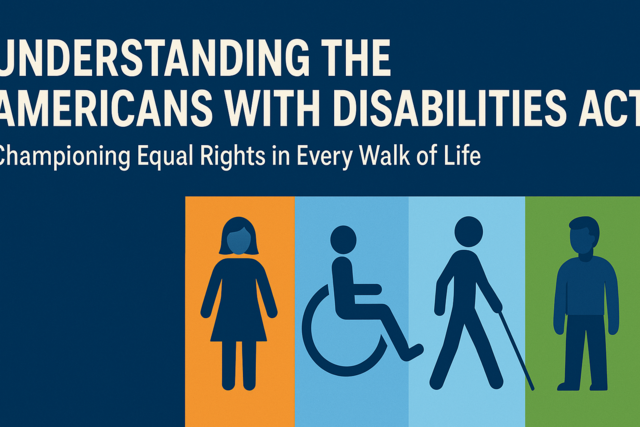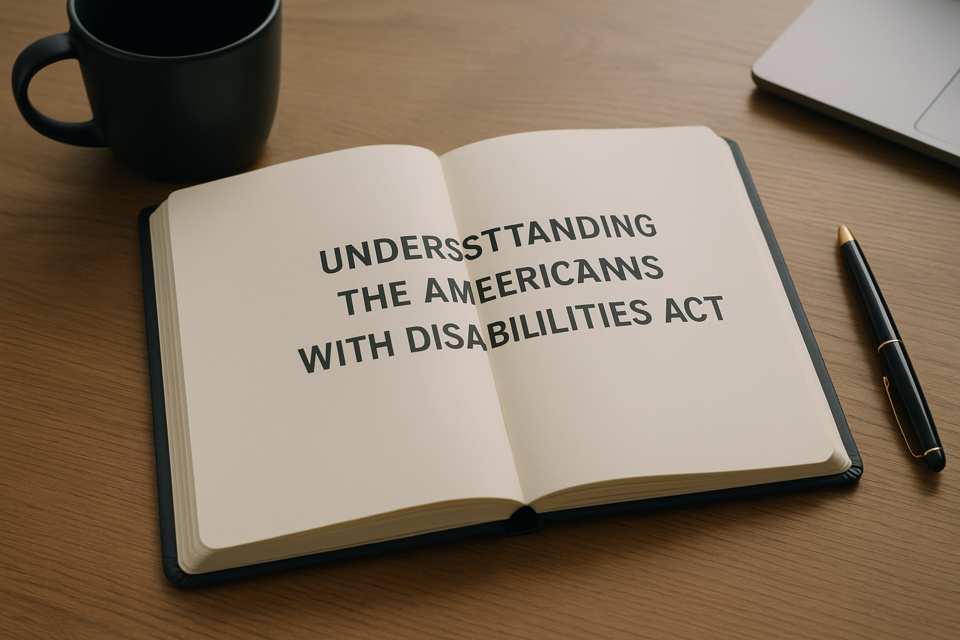Understanding the Americans with Disability Act
Empower Access, Transform Lives: Master the ADA Today

5 Hours average completion time
0.5 CEUs
15 Lessons
17 Exams & Assignments
16 Discussions
48 Reference Files
139 Articles
Mobile Friendly
Last Updated December 2025
Championing Equal Rights in Every Walk of Life
Imagine a world where everyone, regardless of their abilities or disabilities, stands on an equal footing. The Americans with Disabilities Act (ADA) isn't just a law; it's a testament to the spirit of inclusivity that shapes such a world. Spanning all facets of public life, from bustling workplaces to serene parks, the ADA ensures that every individual with disabilities enjoys rights and opportunities mirroring those without.
Embark on a transformative journey with our course, where you will:
- Dive deep into the ethos of the ADA and its unwavering commitment to equality.
- Grasp the nuanced definition of 'disability' under the act.
- Navigate the multifaceted objectives of the ADA, which stretch beyond mere legality.
- Unpack the stipulations and mandates that the ADA anchors.
- Understand the implications of the ADA for employers, ensuring workplaces shine as beacons of inclusivity.
- Decode the ADA's expectations from private enterprises, like bustling retail hubs.
- Dissect the ADA's outreach into governmental bodies and telecom sectors.
- Learn actionable insights to render physical and digital spaces welcoming for everyone.
- Explore the synergy between the ADA and its sister laws, all aimed at bolstering disability rights.
This course not only unravels the intricate tapestry of the Americans with Disabilities Act of 1990 and the ADA Amendments Act of 2008 (ADAAA) but also serves as a primer for businesses, public bodies, and individuals. Whether you're an employer aiming for a gold standard in inclusivity or simply an individual yearning for knowledge, this course will be your compass.
Step in, and let's collaboratively usher in an era where accessibility isn't a privilege but a norm. Are you ready to be the change?
- Inclusive policy interpretation
- Facilitating equal access to services
- Ensuring digital accessibility
- Ethical non-discrimination practices
- Analyzing legal frameworks
- Understanding ADA compliance essentials
- Implementing workplace accommodations
- Navigating public sector obligations
- Advocating for disability rights
-

Creating a Level Playing Field in the Workplace
-

Anatomy and Physiology 101
-

Landscaping 101
-

Disaster Risk Reduction: Preparing for Emergencies
-

Basic Fire Safety
-

Resume Writing
-

Etiquette for Children and Teens
-

Mastering Gmail: Unlock the Power of Modern Email
-

Cat Care and Training 101
-

Critical Thinking Skills
-

Medical Terminology 101
-

Purchasing and Vendor Management 101
-

Become a Life Coach - Course Bundle
-

HIPAA Compliance 101
-

Marketing Copywriter 101
-

Community Development 101
-

Historical Fiction Writing
